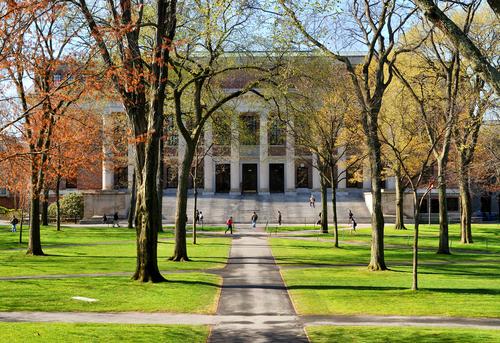The great lie of American higher education is the idea of the university.
We all believe these places exist. Not just in the physical sense–there they are–but as coherent organizations that operate with something resembling identifiable cultures, values, systems, and ideas of themselves. Our whole system of rationing, financing, and credentialing higher education depends on this notion. Yet, it is largely a myth. The American university does not actually exist as we believe it does. For evidence of this, see the academic scandal consuming the University of North Carolina at Chapel Hill.
The Raleigh News & Observer has the most comprehensive coverage of the scandal, which first came to light in 2011, when a suspended UNC football player sued to have his eligibility restored. His court documents included a paper he had submitted for a Swahili class allegedly taught by the chairman of the UNC African and Afro-American Studies Department, Julius Nyang’oro. Fans of rival NC State quickly determined that the paper had been plagiarized.
That pulled string unraveled what appears to be a major credit mill fraud operation being run with total impunity inside one of America’s premiere public research universities. Multiple independent investigations suggest that hundreds of African and Afro-American Studies Department courses offered over more than a decade, many “taught” by Nyang’oro, simply did not exist. No syllabi were created, no lectures delivered, no grading standards imposed. Hundreds of additional courses grades were changed and hundreds more “independent study” grades awarded. A large and disproportionate number of students involved were male football and basketball players. As a result, UNC’s chancellor and football coach both lost their jobs, and Nyang’oro was indicted on felony charges last week.
This is, to say the least, awkward for UNC Chapel Hill. Like all universities, particularly those with prestige, it depends on the idea that it actually exists, in the sense that a UNC Chapel Hill degree means something that is common to all other UNC Chapel Hill degrees and distinct from all degrees awarded by other universities. The elaborate marketing schemes and high-stakes admissions tournaments run by elite universities suppose that admission means something other than the act of selection itself, that the experience of going to school in Chapel Hill is tangible, identifiable, and in some way real.
In fact, none of this is true. UNC Chapel Hill is not a coherent undergraduate institution. It’s a holding company that provides shared marketing, finance, and physical plant services for a group of autonomous departments, which are in turn holding companies for autonomous scholars who teach as they please. This is the only possible explanation for the years-long, wholly undetected operation of the African and Afro-American Studies Department credit fraud scam. Or, rather, it’s the only possible explanation other than a huge, organization-wide conspiracy in which the university administration, department, and football team colluded to hand out fake grades to hundreds of athletes.
The university, of course, vehemently denies that anything resembling the latter scenario is true. Despite damning emails between Nyang’oro and the athletic department, UNC is desperately selling the story that the entire credit fraud operation was the work of just two people–Nyang’oro and an assistant–and involved no athletic department wrongdoing of any kind. That’s because while academic misconduct gets you nothing more than a wrist-slap from your accreditor and year of sad/absurd “monitoring” in which the university administration randomly checks classes to make sure they actually exist, athletic misconduct can cost the university things it actually cares about, like money, bowl appearances, and athletic scholarships.
In other words, the only way for UNC administrators to avoid blame for gross academic misconduct is to admit that academic conduct was never their concern.
Meanwhile, the football team must be saved because the intense tribal loyalty generated by big-time sports is one of the chief mechanisms employed by universities to create the illusion that they exist. I’ve lived in Chapel Hill and experienced the closest thing to full-scale Dionysian revelry one is likely to find in modern America, on Franklin Street after the men’s basketball team won it all. It was thrilling. It felt like we were one people, all of us, conquerors. But it was also an illusion (I wasn’t a student at the time), a false consciousness manufactured by the university to conceal its non-existence as an academic institution.
The cynicism and dishonesty inherent to that seep into the cracks of university life, occasionally as outright criminality but far more often as mediocrity and simple indifference. If Julius Nyang’oro had simply bothered to show up in a room on campus from time to time, say something–anything–to some “student” athletes, and hand out a bunch of A-minuses, he never would have been caught. In the modern non-university, he wouldn’t even have been doing something wrong.
This article was first published on the New America Foundation website. Read the original.
The New America Foundation is a nonprofit, nonpartisan public policy institute that invests in new thinkers, breakthrough research, and policy innovation to address the most important challenges facing the United States.
*Image of a college campus via Shutterstock
